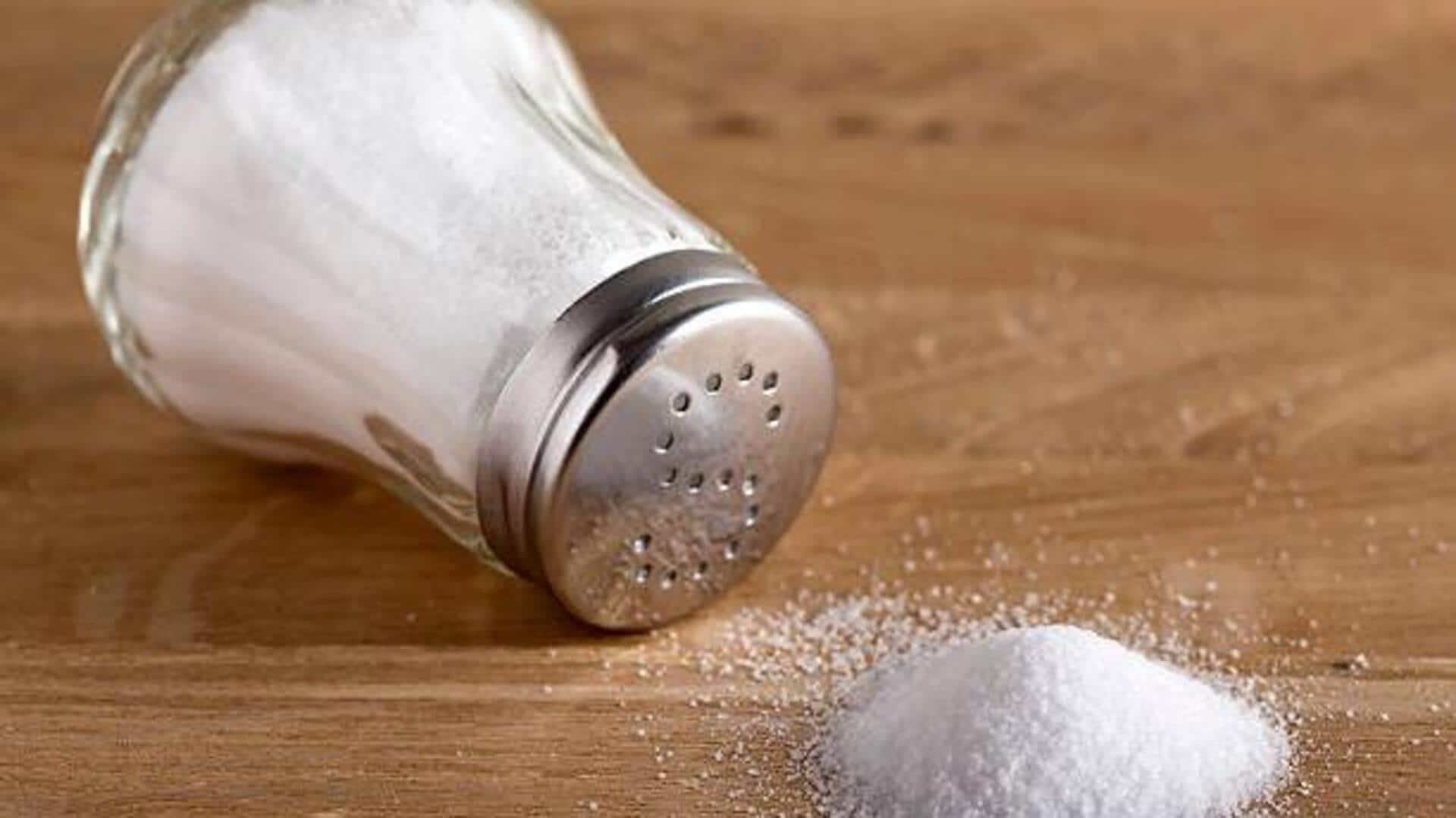
5 myths about salt you need to stop believing
What's the story
Salt is a staple in kitchens across the globe, yet it has been mired in misconceptions. Most people assume that salt is bad for health, but the reality is a bit more complicated than that. Knowing these myths can help you make mindful dietary choices. Here are five common myths about salt intake and the truth behind them.
Types of salt
Myth: All salt is created equal
Not all salt is created equal. Table salt, sea salt, and Himalayan pink salt vary in mineral content and processing techniques. While table salt undergoes heavy processing to remove impurities, sea salts are left with trace minerals (like magnesium and calcium). These differences don't make a huge difference to health but may influence taste preferences.
Health implications
Myth: Low-salt diets are always healthier
While cutting back on sodium can help those with high blood pressure, going too low on salt might cause other health issues, such as insulin resistance and an increase in cholesterol. Hence, it is important to strike a balance in sodium intake and not eliminate it completely from the diet. This way, the body gets what it needs without the side effects of excess/deficient sodium.
Weight misconceptions
Myth: Salt causes weight gain
Salt itself has no calories, thus can't contribute to weight gain. However, sodium-rich foods are often processed and calorie-dense, which could lead to weight gain if consumed in excess. By opting for whole foods with natural sodium levels, people can manage their weight better without resorting to processed alternatives.
Nutritional comparison
Myth: Sea salt is better than table salt
Sea salt has become widely popular due to its alleged health benefits over table salt. However, both varieties contain the same amount of sodium by weight. The main difference between the two lies in texture and flavor, rather than nutritional value. Hence, the decision of selecting one over the other should be made based on personal preference, not health concerns.
Individual differences
Myth: High sodium equals high blood pressure for everyone
While too much sodium can elevate blood pressure in some people, others might not see much difference, even at higher levels of consumption. This could be because of genetics or lifestyle choices such as regular exercise or potassium-rich diets. These habits effectively mitigate sodium's impact on blood pressure regulation. So, drastic cuts aren't required for everyone, all the time, as once thought.